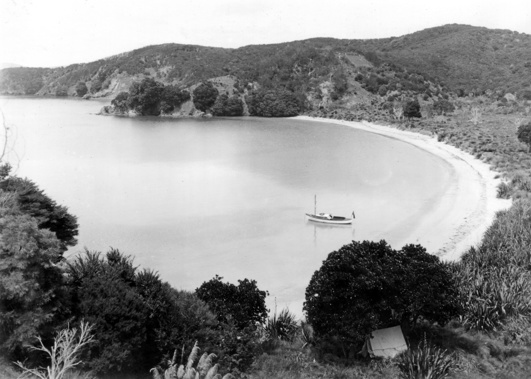
The Lakota people, better known to movie-goers as the Sioux, had a saying about their inter-tribal skirmishes.
“Too few to win. Too many to die.” For many years it was an accurate reflection of reality. The plains tribes were never that numerous, and their weapons inadequate for the practical challenge of annihilating one’s enemies entirely – even if that had been their intention. As a consequence, encounters with tribal foes were mostly occasions for demonstrating one’s personal prowess as a warrior.
The arrival of Europeans changed all that.
The willingness of the “White Man” to kill and kill, and go on killing, until there was no one left to kill, was the most disturbing aspect of his character. The Native Americans struggled, unsuccessfully, to understand the Europeans’ motivation. They were not to know that there was nothing new in the American republic’s ruthless ethnic cleansing. The Roman historian Tacitus had summed-up the process of imperial conquest in a single, memorable, sentence: “They make a desert and call it peace.”
Is that what our settler ancestors did? Mistake subjugation and expropriation for pacification? Not really. The way the British acquired New Zealand was a curious and novel combination of Christian conversion, supplying Māori chieftains with weapons more than equal to the task of annihilating their traditional enemies, and then sitting back and watching as muskets and European diseases decimated the population. Only then, with the tribes weakened and demoralised, did the “Pakeha” offer them the “protection” of the British Crown. In exchange, the chiefs allowed the British to claim sovereignty over New Zealand.
The rest is history – or, at least, a number of wildly different versions of New Zealand history.
Until relatively recently, however, the bones of our nation’s story were not in dispute. The rapid influx of British immigrants in the 20 years after the signing of the Treaty of Waitangi placed irresistible pressures on the colonial authorities to acquire land from the tribes and on-sell it to land-hungry Pakeha.
When, inevitably, a number of the tribes combined politically and militarily to resist any further alienation of their lands, the colonial government declared them rebels and, with the assistance of a large and well-equipped military force supplied by the British government, crushed their resistance and confiscated their territories.
The remaining tribes were then methodically stripped of their lands by a legislature and a judiciary determined to drive New Zealand’s indigenous people to the extreme margins of the new society the Pakeha were constructing. In this objective they were remarkably successful.
But, not wholly successful. Indisputably, there had been too few Māori to win. But even with the deadly co-operation of disease, despoilation, destitution and demoralisation, there had also proved to be too many to die.
It was Friedrich Nietzsche who wrote: “A nation usually renews its youth on a political sickbed; and there finds again the spirit which it had gradually lost in seeking and maintaining power.”
Although nothing like the European nations Nietzsche was writing about, there was, nevertheless, sufficient national consciousness among the young Māori leaders of the early 20th century to haul their people out of the sickbed to which they had been confined by the relentless pressures of colonisation, and upon which many contemporary Pakeha politicians expected them to expire.
From that low point in the early 1900s, New Zealand’s indigenous population has slowly but steadily recovered, to the point where the 2023 Census shows one in five New Zealanders identify as Māori. Now, 20 per cent is not a big enough chunk of the population to win back control of your lost lands – but it is getting pretty darn close.

What is more, a rapidly growing number of young Māori are convinced that their iwi and hapu have regained sufficient confidence and strength – especially over the past 30 years – to turn the idea of, at the very least, a bi-cultural New Zealand into something more than a Māori nationalist pipe dream. This conviction has grown into something approaching a certainty over the course of the past six years, thanks in large measure to the combined efforts of Nanaia Mahuta, Willie Jackson and Labour’s Māori caucus.
During that time, largely out of sight of Pakeha politicians and journalists, there has been a concerted intellectual effort, led by the late Moana Jackson, to develop what might best be described as an Aotearoan constitution. The amount of flesh that has been added to the bones of a bi-cultural New Zealand would surprise and shock Pakeha New Zealanders. Alongside Jackson’s constitutional framework, the He Puapua Report begins to look like a “Beginners’ Guide”.
Back when “decolonisation” was a term reserved for African and Asian nations in the throes of finally breaking free from the grip of the old imperialist powers of Britain, France and Portugal, social scientists warned against what they dubbed “The Revolution of Rising Expectations”. It was, they said, very dangerous indeed to allow the idea to form in the minds of a population that has long been downtrodden that the days of their subjection are coming to an end, because, once formed, it is even more dangerous to tell them that they are not.
But that is what the National-Act-NZ First Coalition Government has done – or very nearly so. Through policy reversals promised, or already delivered, it is signalling that the rapid progress made by Māori since 2017 was unwarranted and unwise. The message sent is uncompromising: the expectations of revolutionary changes in the way New Zealand is governed, and the role played by Te Tiriti in constructing those expectations, are well in excess of the Crown’s capacity, or inclination, to deliver. Or, even more bluntly: the Revolution has been cancelled.
Te Pati Māori 2.0 – a political force considerably wilder and more uncompromising than its predecessor – is responding to the Coalition’s message with an angry “Like Hell!” Indeed, the reaction of iwi and hapu across the whole country has made it clear that the revolutionary genie released by Labour has no intention of allowing itself to be stuffed back in its bottle.

Those in need of more convincing should follow the link to the webpage of Hui Taumata and look at the papers already submitted. One of the most striking is “Towards A Māori Nation” by Helmut Modlik.
Prime Minister Christopher Luxon would be wise to take on board the following summation of the present impasse:
“Following efforts in recent decades to reconcile and heal historic injustices, the recently elected coalition government has rapidly and callously reversed the trajectory of that reconciliation. In response, only three options are possible for ngāi Māori: to accept the reversal and domination of hapū/iwi by the Crown; to seek a return to a partnership frame of respectful power sharing; or to withdraw consent to participate further in current constitutional arrangements and civil society, choosing instead to revitalise and recreate a new ’polity’ representing the interests of ngā hapū/iwi katoa i.e. to exert our collective tino rangatiratanga.”
In other words, returning to the status quo ante the 2023 general election is the Coalition Government’s least-worst option. If Luxon opts to press ahead regardless of Māori objections, then Modlik is very clear concerning the consequences:
“If the Crown is not interested in seeking a genuine partnership, then this proposal supports the further development of additional institutional arrangements to enable the creation and operation of an independent Māori nation in Aotearoa with associated governing institutions i.e. independent legislature, executive and judiciary.”
In vain will the PM object that such behaviour is “illegal”. New Zealand is fast approaching the point where unabashedly revolutionary elements will gleefully paraphrase the Lakota folk wisdom:
“You have too few police officers to win. And you cannot afford to let any of us die.”
Take your Radio, Podcasts and Music with you









